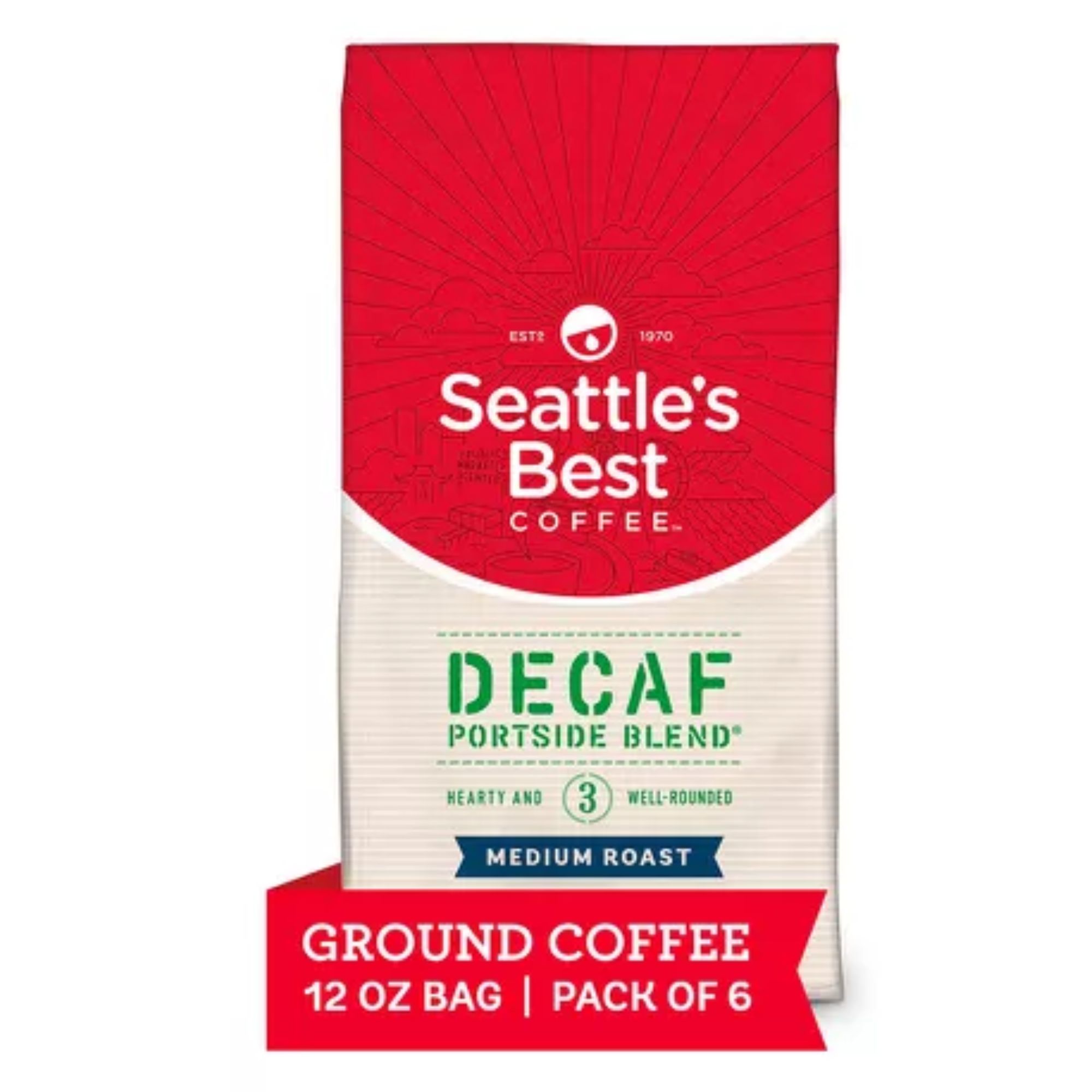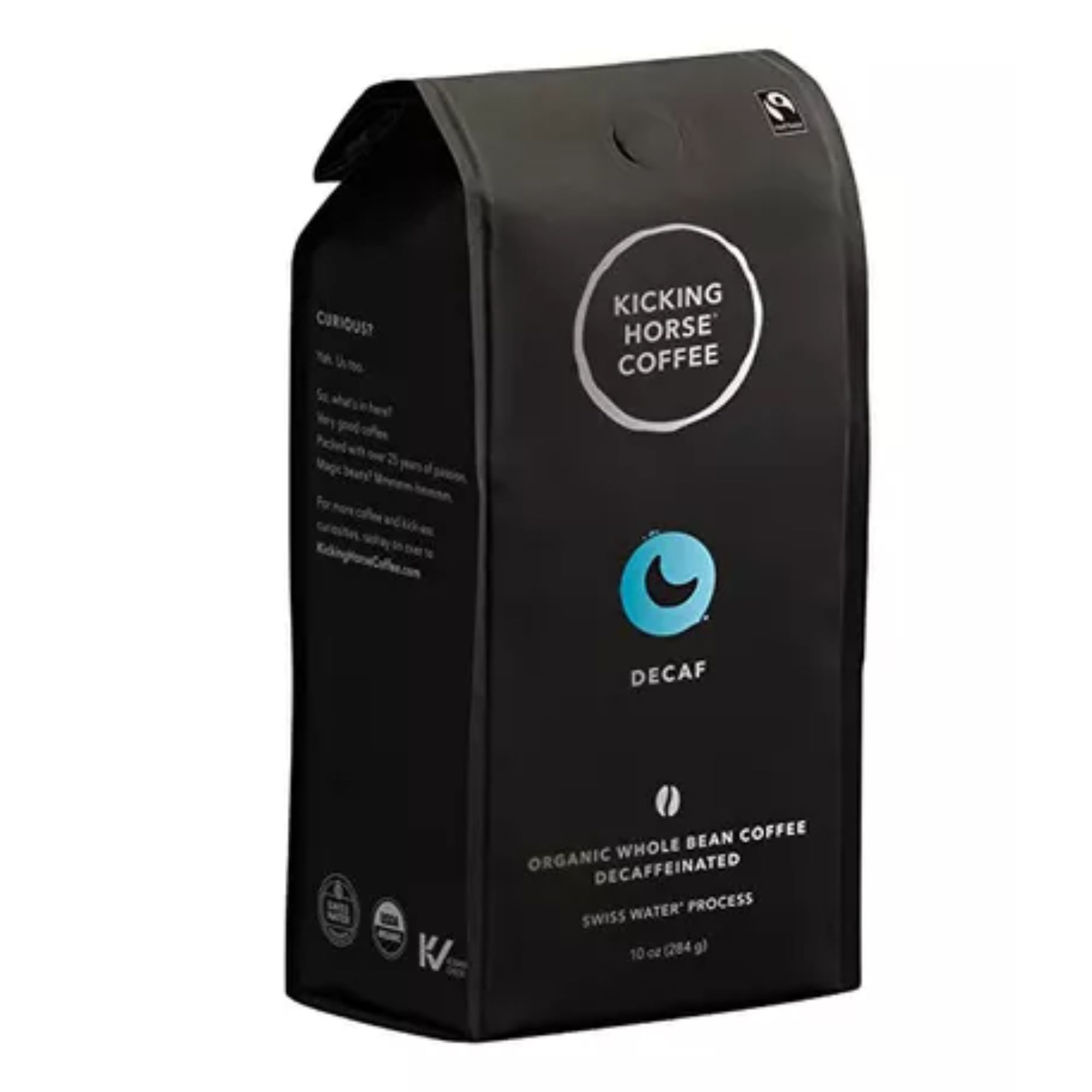Everything you need to know about decaf coffee, explained by baristas
I asked baristas and coffee roasters about decaf coffee to find out everything you need to know, from health benefits to the best brewing techniques

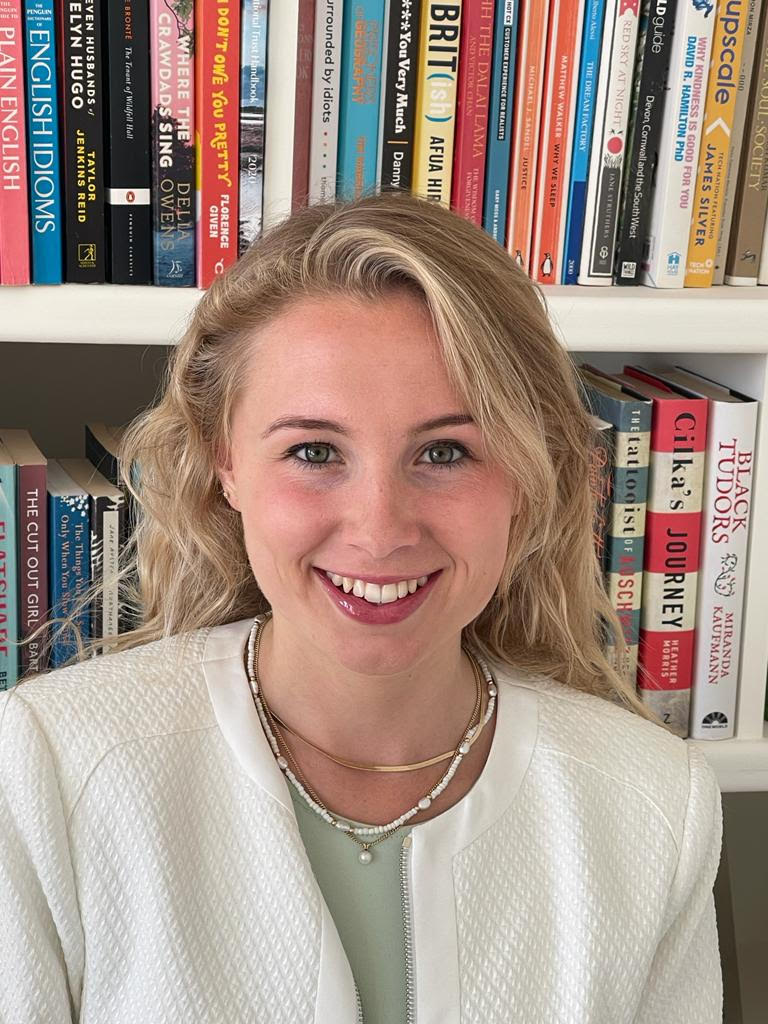
Decaffeinated coffee is getting better and more popular by the day. You can drink decaf into the late afternoon, enjoy multiple cups without buzzing or shaking, and you'll still get all the health benefits of regular coffee (as long as you're buying the right blend).
Decaf coffee has an unshakable reputation for tasting, dusty, chemically, and bitter, but that's a result of cheap processes. Many companies save money by using the same chemicals that are in paint strippers, so you lose a lot of coffee's goodness as well as the flavors. Don't worry though, there are better methods out there and delicious ways to brew decaf coffee.
The Swiss water method is an expensive, but gentle way to decaffeinate coffee. Your beans might be a few dollars more, but they'll be delicious (and still full of all the oils, antioxidants, and fiber that you would drink from a regular cup of coffee). I’m here to tell you everything you need to know about decaf coffee, including where to buy good decaf coffee beans and the best coffee makers for brewing them in.
How does decaffeination work?
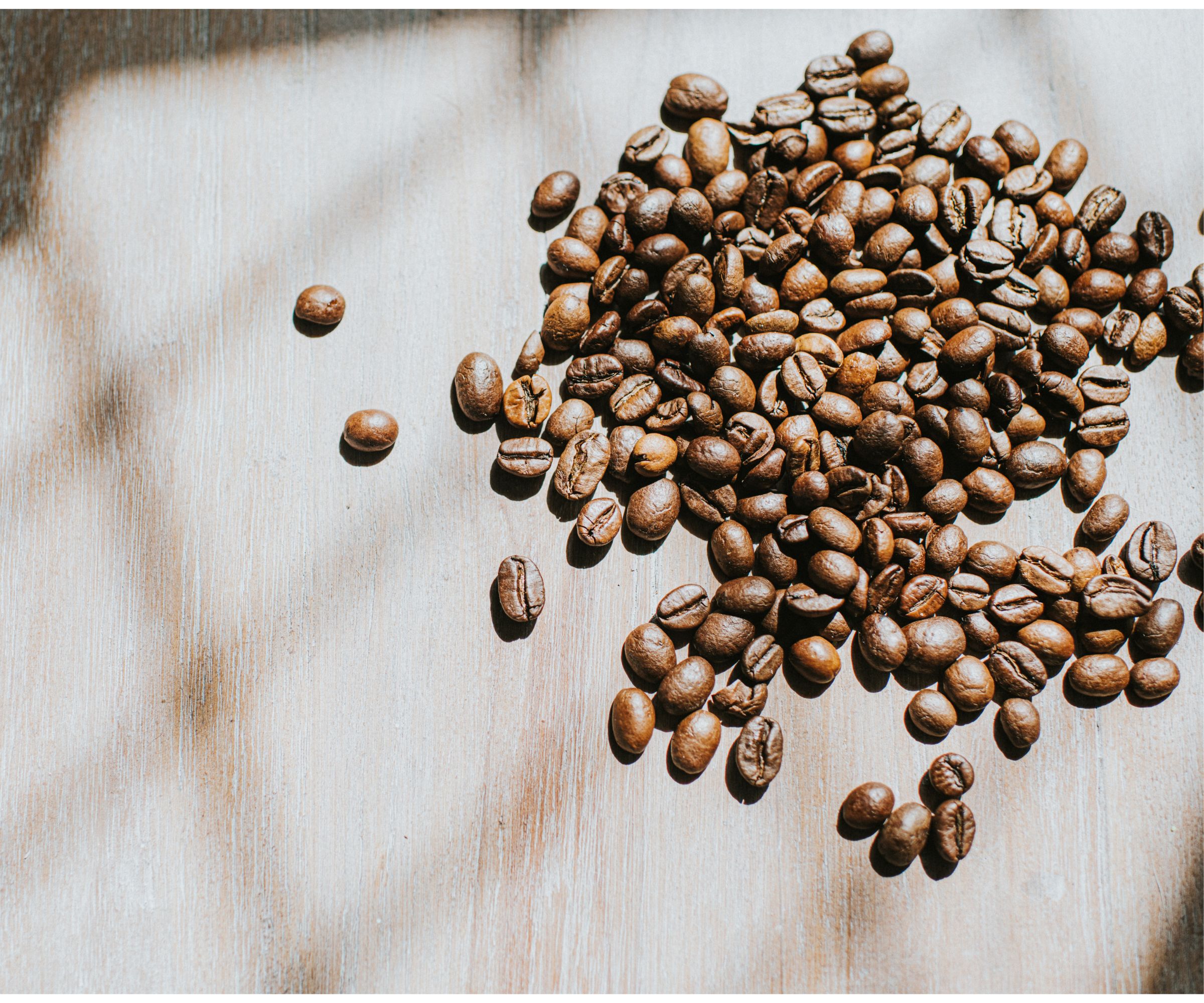
People have been decaffeinating coffee from as early as 1903. Ludwig Roselius, a German coffee merchant, used benzene (a carcinogenic solvent) to take the buzz out of coffee. But the process has changed a lot in 120 years. These days it can be divided into two categories: chemical and water decaffeination.
The chemical process uses either the Indirect Solvent Method or the Direct Solvent Method. Kayla Stavridis, Head of Marketing at Barista HQ, explained to me that these processes essentially use 'steam with a solvent (usually ethyl acetate or methylene chloride) to strip the caffeine from green coffee beans before they are roasted'. However, these solvents take a lot of coffee's healthy oils and flavors with them. This method is cheaper, but it's really harsh on coffee beans.
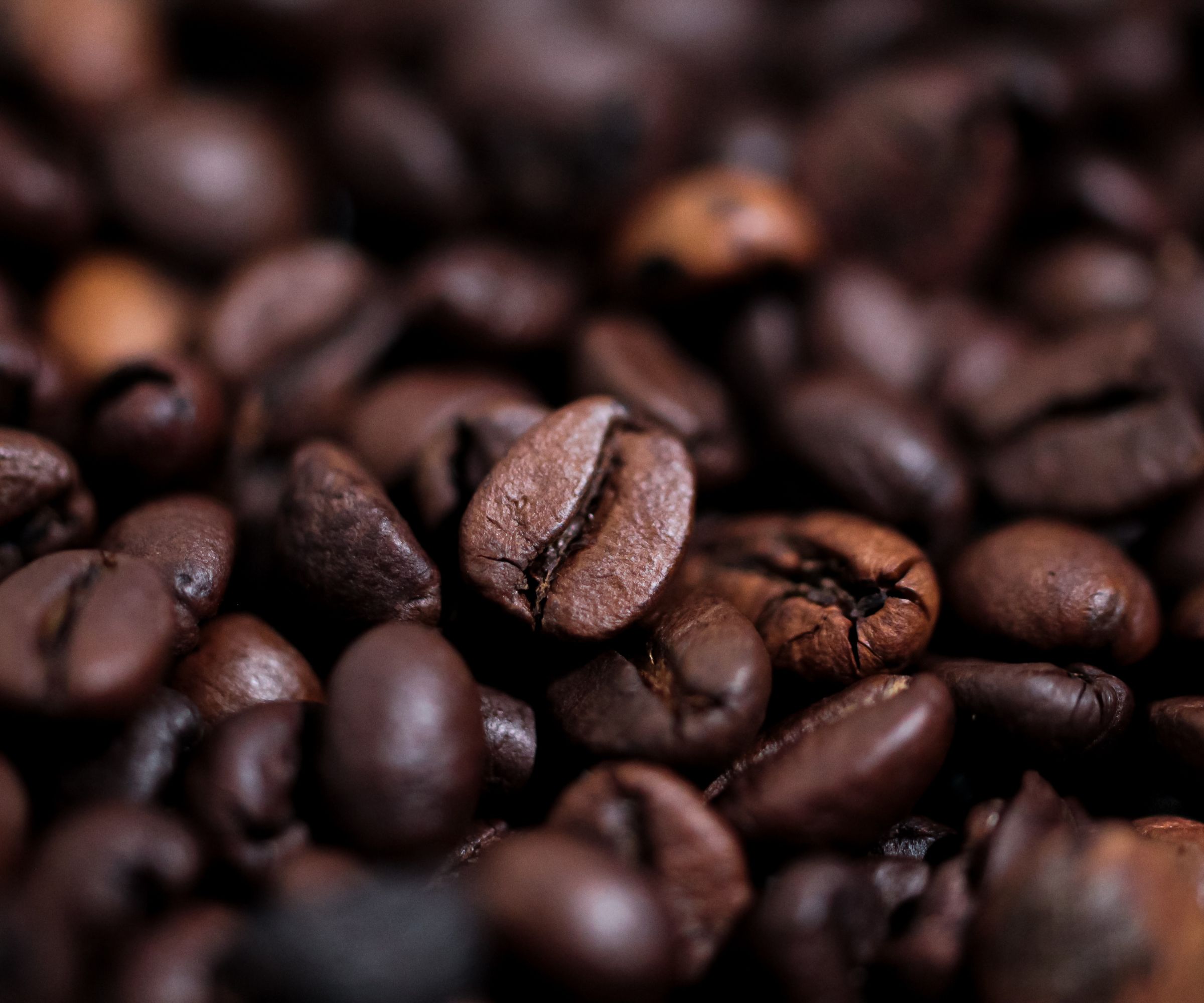
The second, more expensive process, is the Swiss Water Process. I spoke with Ashley Palmer-Watts, professional chef and founder of Artisan Coffee Co. He's been doing research into decaffeinated coffee, and worked with Q Graders (elite professionals who evaluate coffee) to make the best, most nourishing decaffeinated coffee on the market. He explained the Swiss Water Process to me. 'You have your beans in a chamber and you run caffeinated water over the beans. The caffeine travels from in the bean to the greater mass of caffeine in the water through osmosis. A machine captures the water, refills the chamber and keeps the process going until the caffeine is pretty much out of the bean'.
He told me that this process is really expensive and it takes a long time but he thinks it's worth doing. 'It leaves all the good stuff in the bean, all the oils, all the things that you want to develop in the bean when you roast it. These are the parts that will develop into the flavor that we know as coffee.'
Sign up to the Homes & Gardens newsletter
Design expertise in your inbox – from inspiring decorating ideas and beautiful celebrity homes to practical gardening advice and shopping round-ups.
I tried some of his decaffeinated coffee. Called The Dreamer, it was the best decaffeinated coffee I've ever had. Ashley told me 'Almost nobody who drinks normal coffee likes decaf, so I wanted to make something that everyone could enjoy.' His coffee was light and floral with notes of honey. Even better, it didn't damage my sleeping pattern, even when I had it mid-afternoon.
If you need to convince someone that decaf coffee is tasty, good quality decaffeinated beans are the way to do it. Here are some of my favorites:
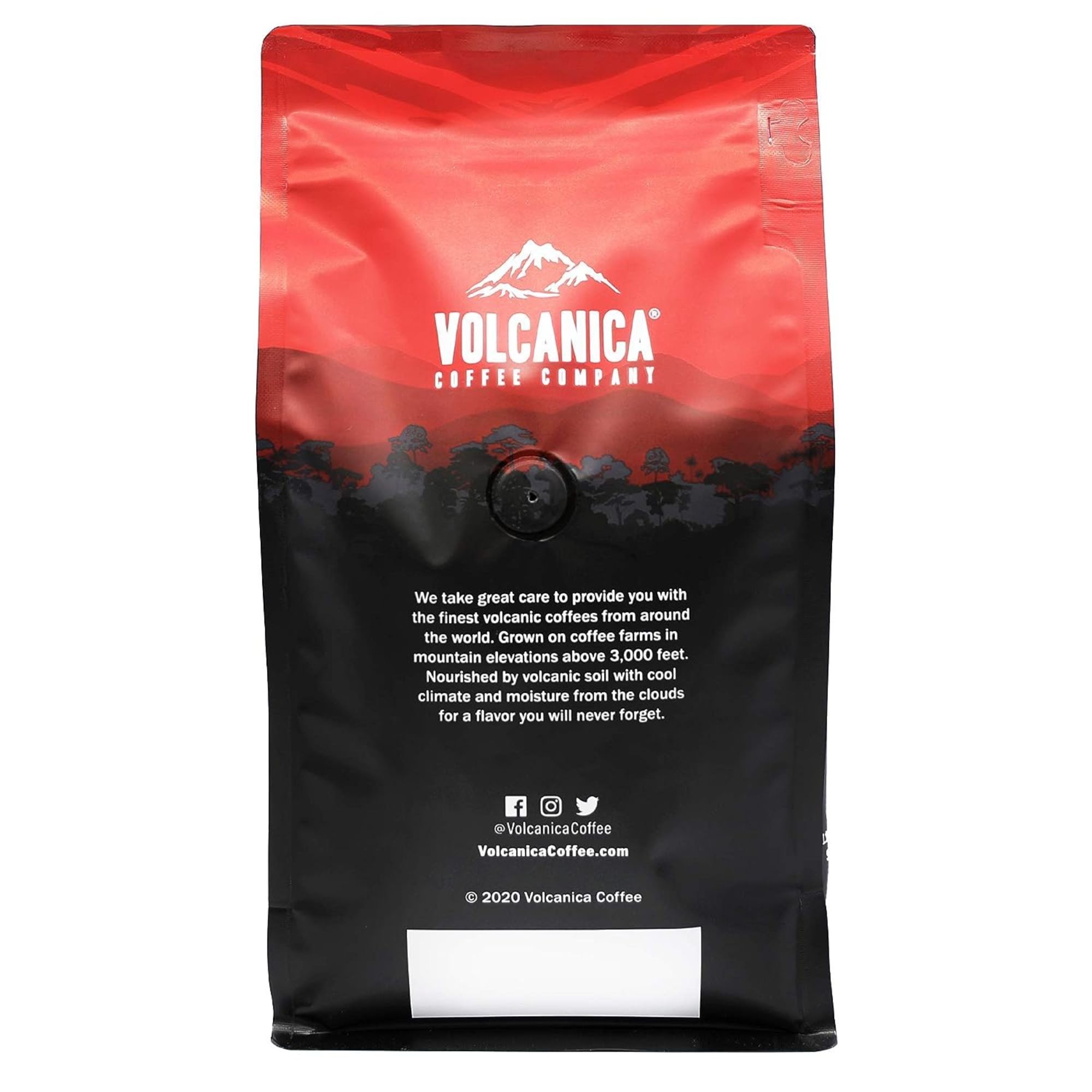
With floral and fruity notes, this Costa Rica decaf is a winning bean for me. Volcanica use the Swiss Water Process and the proof is in the cup: it's a full-bodied, smooth cup of coffee. I like this Ethiopian bean too.
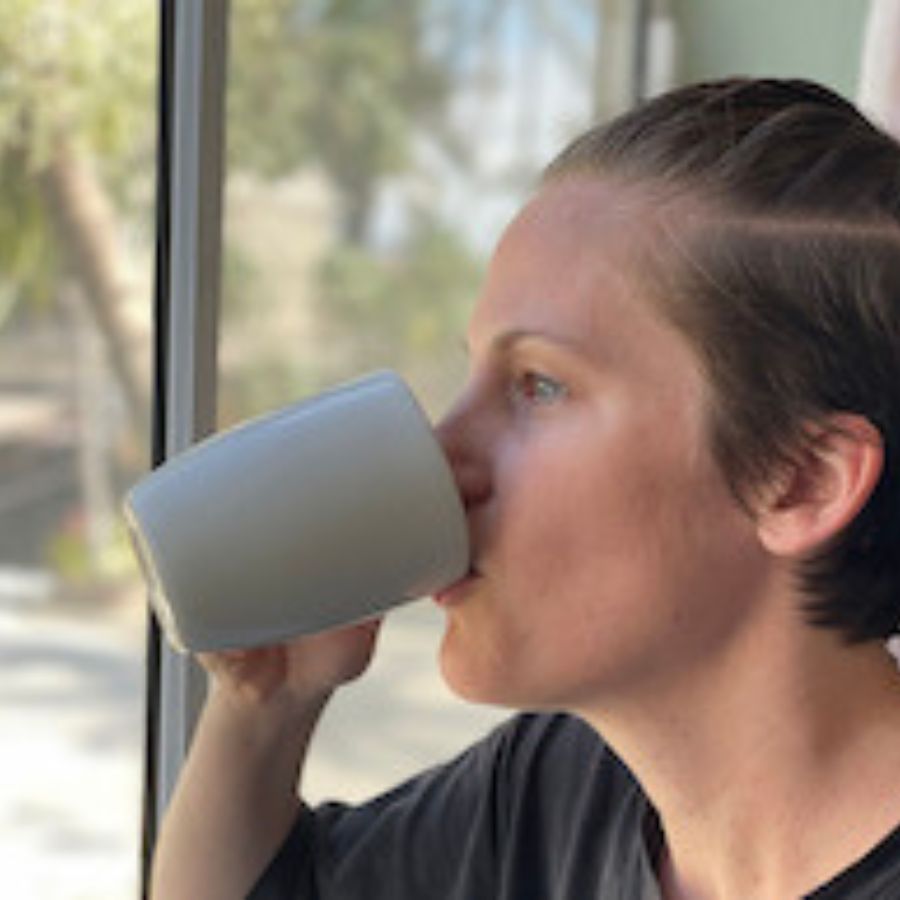
Kayla is the Head of Marketing at Barista HQ. She's an expert on all things coffee and has looked into the decaffeination process. As a coffee connoisseur, she's spent years in search of a decaf blend that tastes as good as the real thing.
Brewing Methods
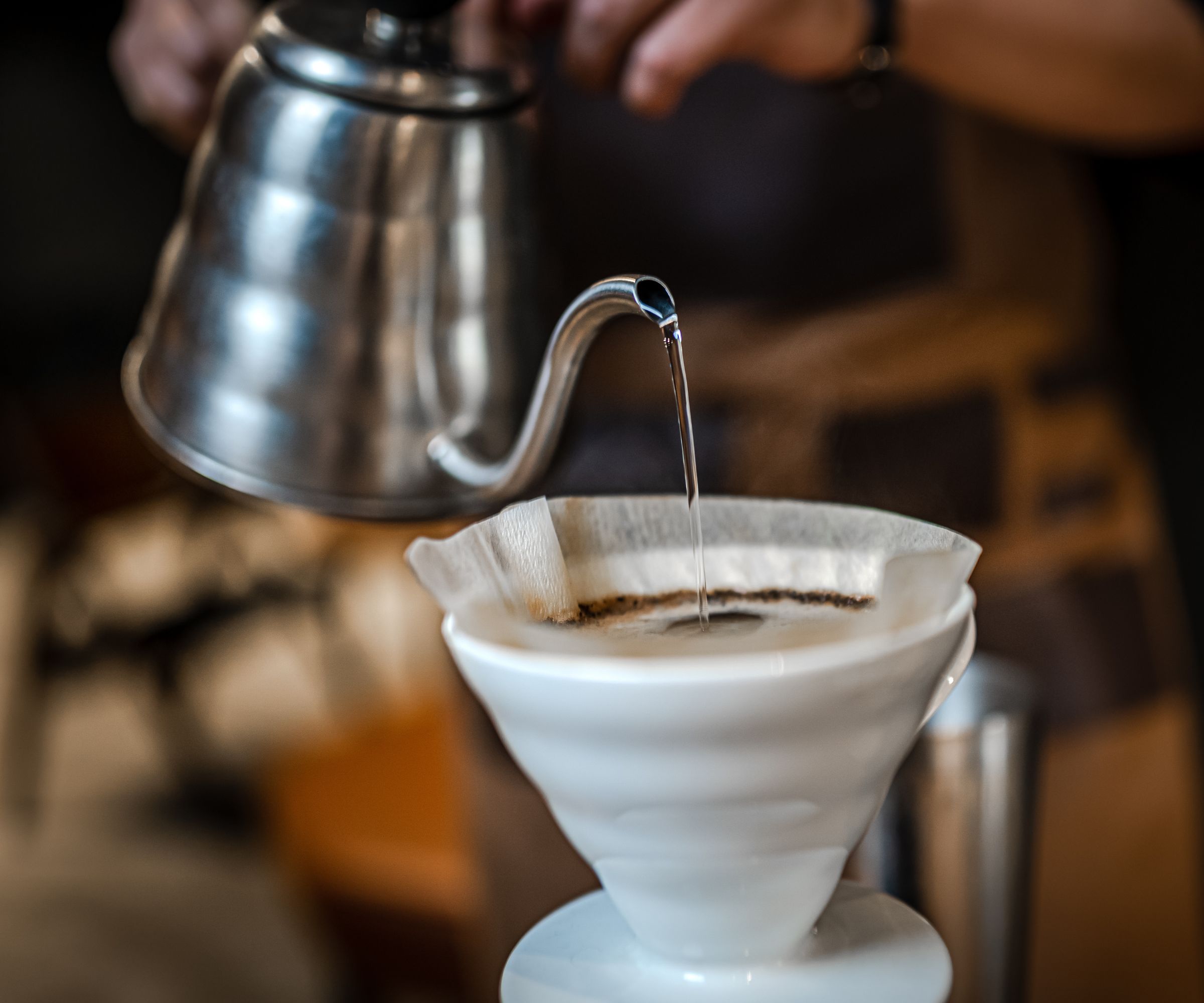
You can buy your decaf exactly as you would normal coffee: as beans, grounds, or pods. This means that you can brew them in exactly the same way that you would your normal coffee. I've used it across a range of different types of coffee makers and found that decaf is best in pour-over, drip coffee makers, or French presses.
Maurice Contrearas, CEO and Founder of Volcanica Coffee Company, told me that the Swiss Water Process can result in 'your beans containing less soluble matter, resulting in a lighter flavor. The best way to remedy this is to slow down the brewing process, giving your coffee more time to extract and bloom. We recommend using a slightly finer grinder or using slightly more coffee with your preferred brewing method.' That's why I always recommend the pour-over, drip, or French press coffee makers over more intense espresso machines. You can still use these coffee makers, but be sensitive to the taste of your coffee and ready to adapt your coffee ratios and brew times.
If you buy decaffeinated K-Cups, it's likely that the company will have adjusted the bean blend so that you can taste the well-balanced coffee flavors. If you are brewing yourself, make sure to adjust how you brew, whether it's with more coffee or a longer time, because it isn't identical to regular coffee.
These are the best coffee makers for decaf coffee:
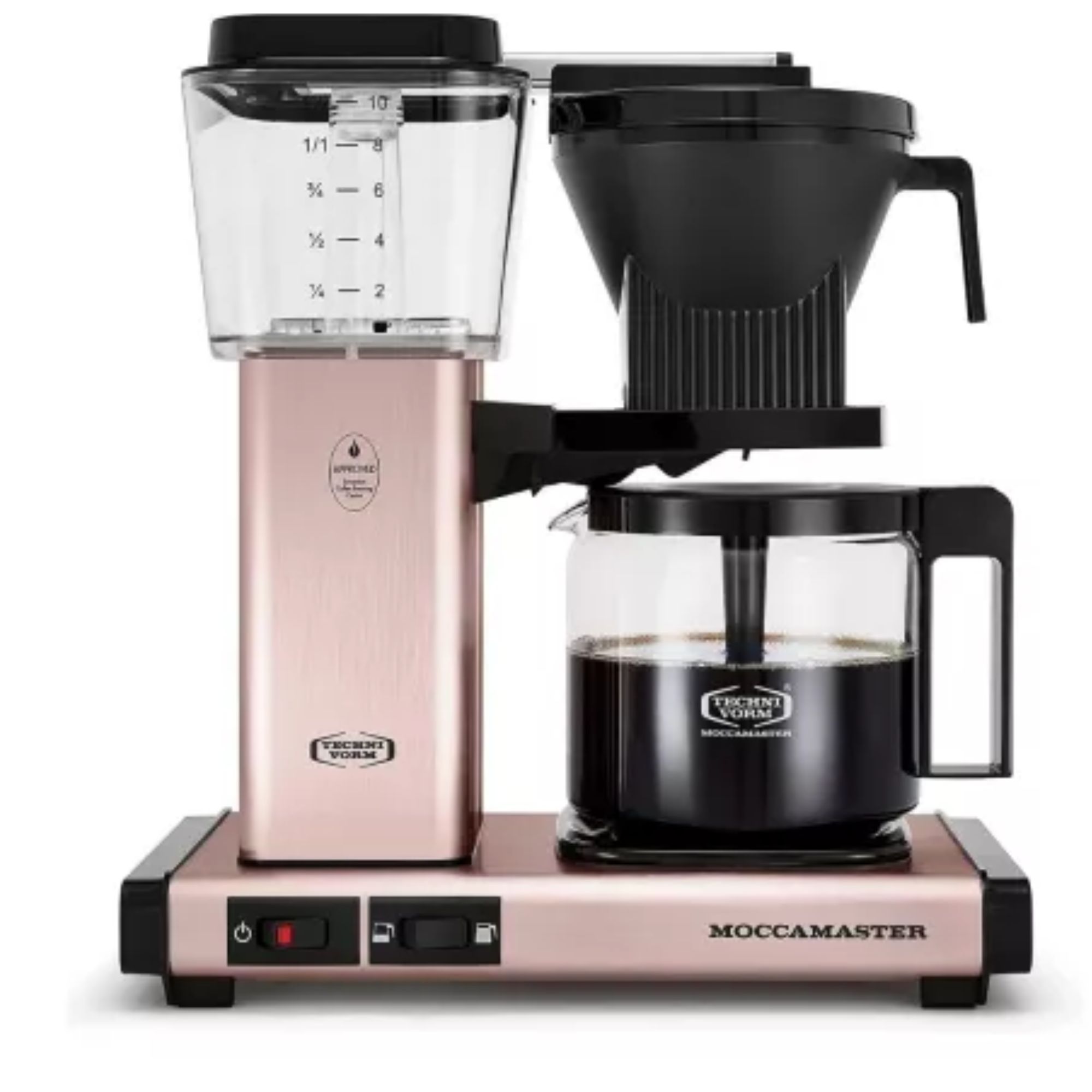
This drip coffee maker is luxurious. It's really quiet and meets the qualifications set by the Specialty Coffee Association and the European Coffee Brewing Center. Trust us, you can taste it.
Our Technivorm Moccamaster KBGV Coffee Maker review has more details.
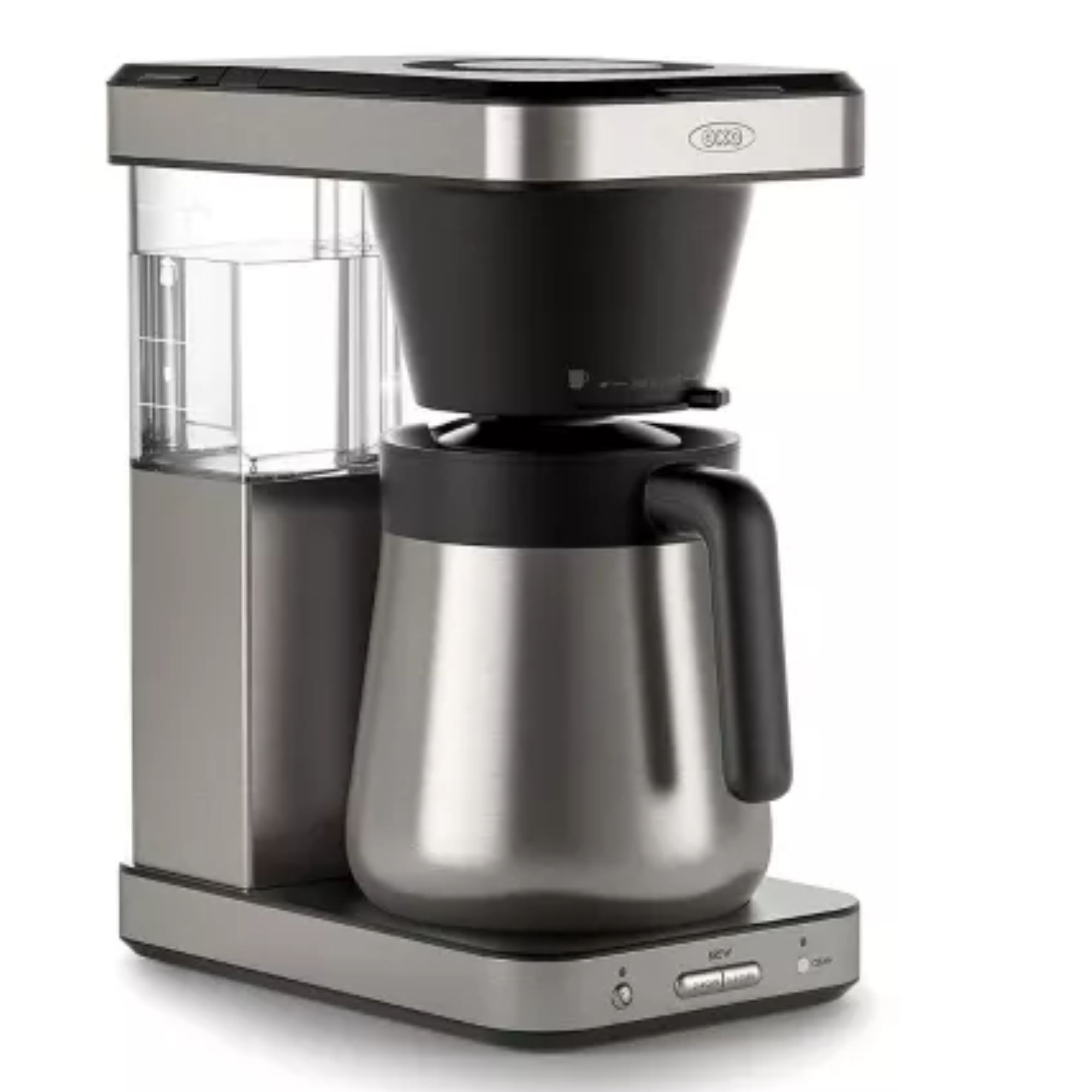
This is at the top of our drip coffee maker guide, because it's excellent value. It makes straightforward, great coffee and meets the Speciality Coffee Association's Golden Cup Standard.
Our OXO 8-Cup Coffee Maker has more details.
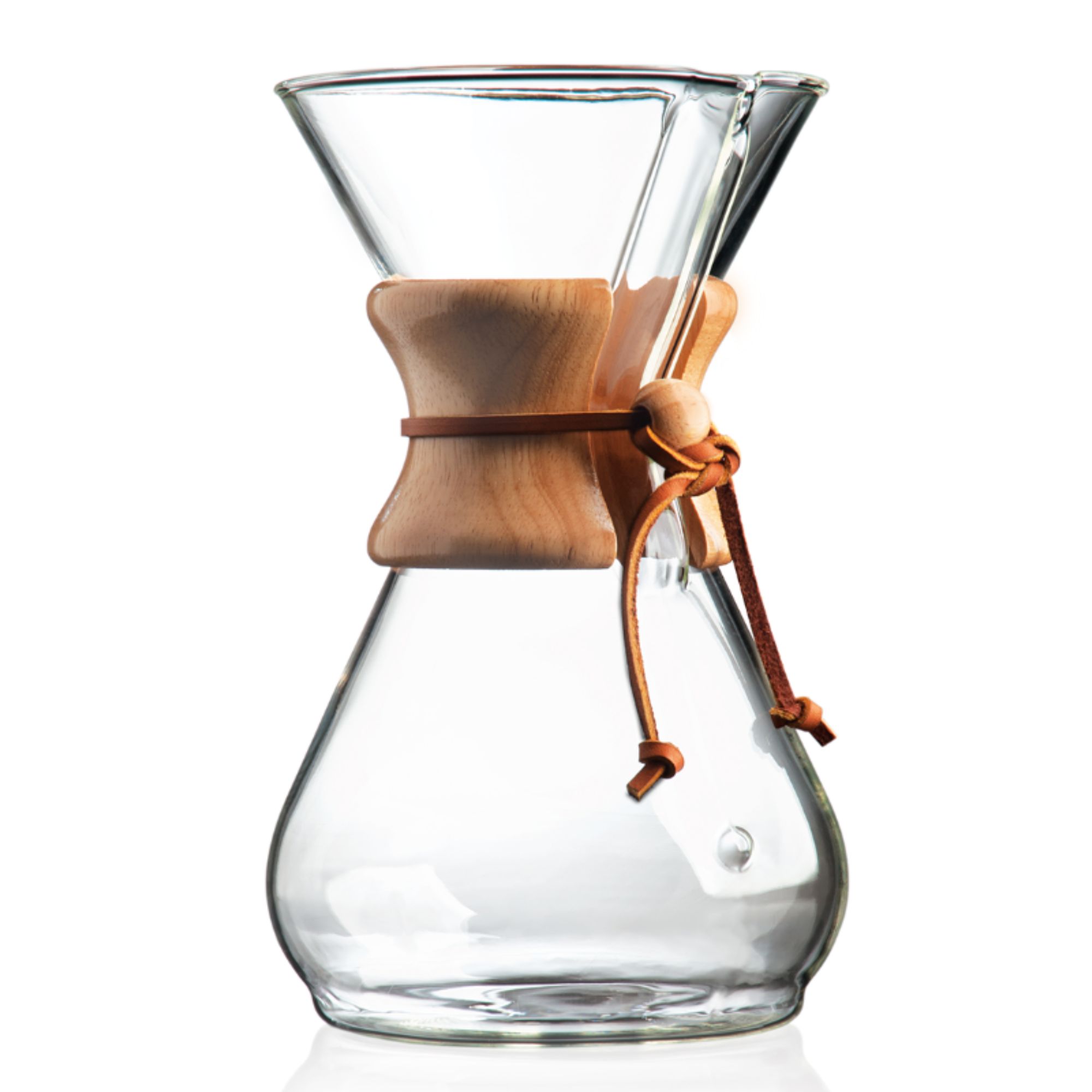
For ultra-smooth coffee that can cater for up to eight people, the Chemex is the perfect choice. You can use it to make cold brew coffee as well as hot, regular brews. It's easy to clean and you can keep it in your refrigerator too.
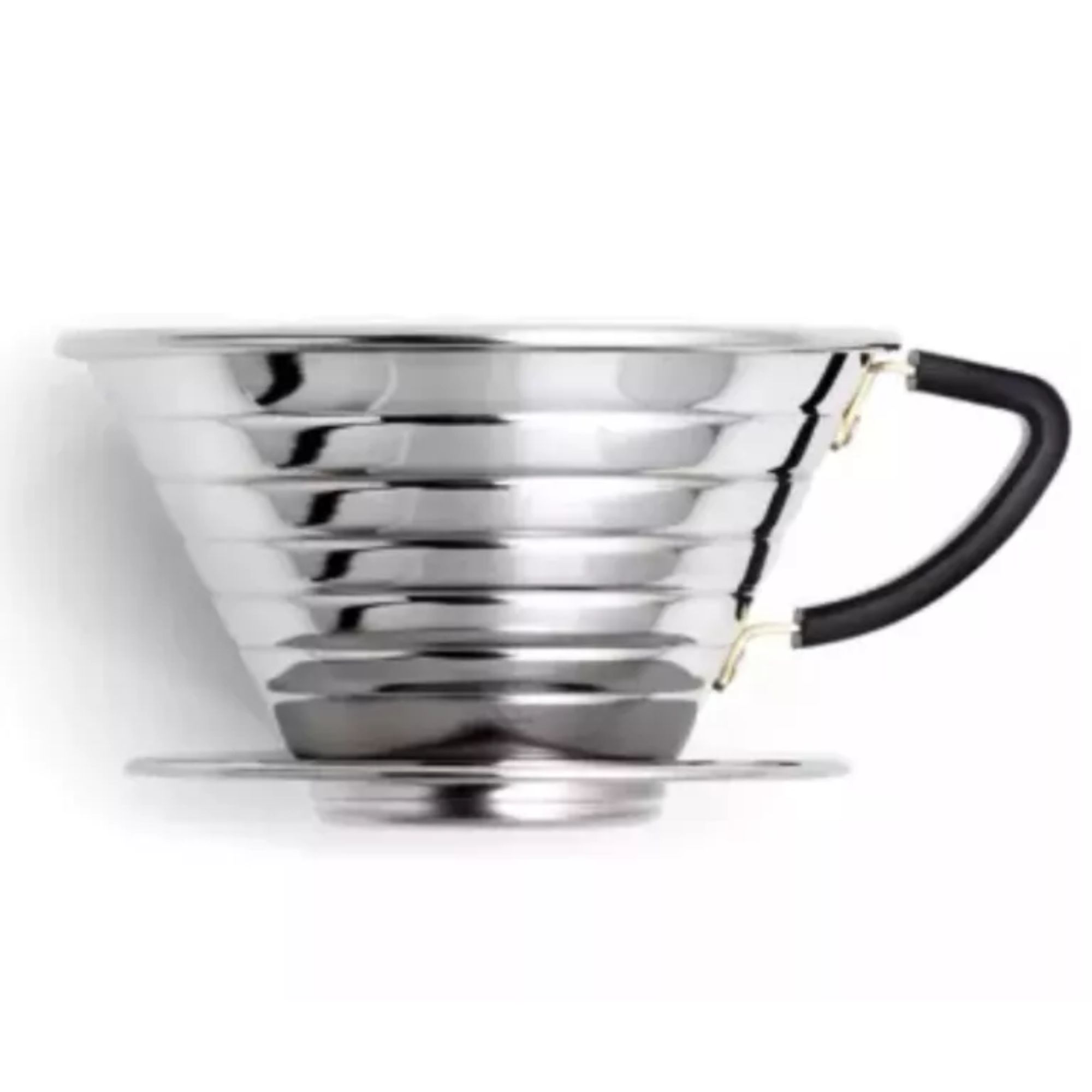
Chic and small, the Kalita Wave has a devoted following. It's one of the best pour-overs available, especially for single servings of coffee. The traditional design delivers a smooth brew every time.
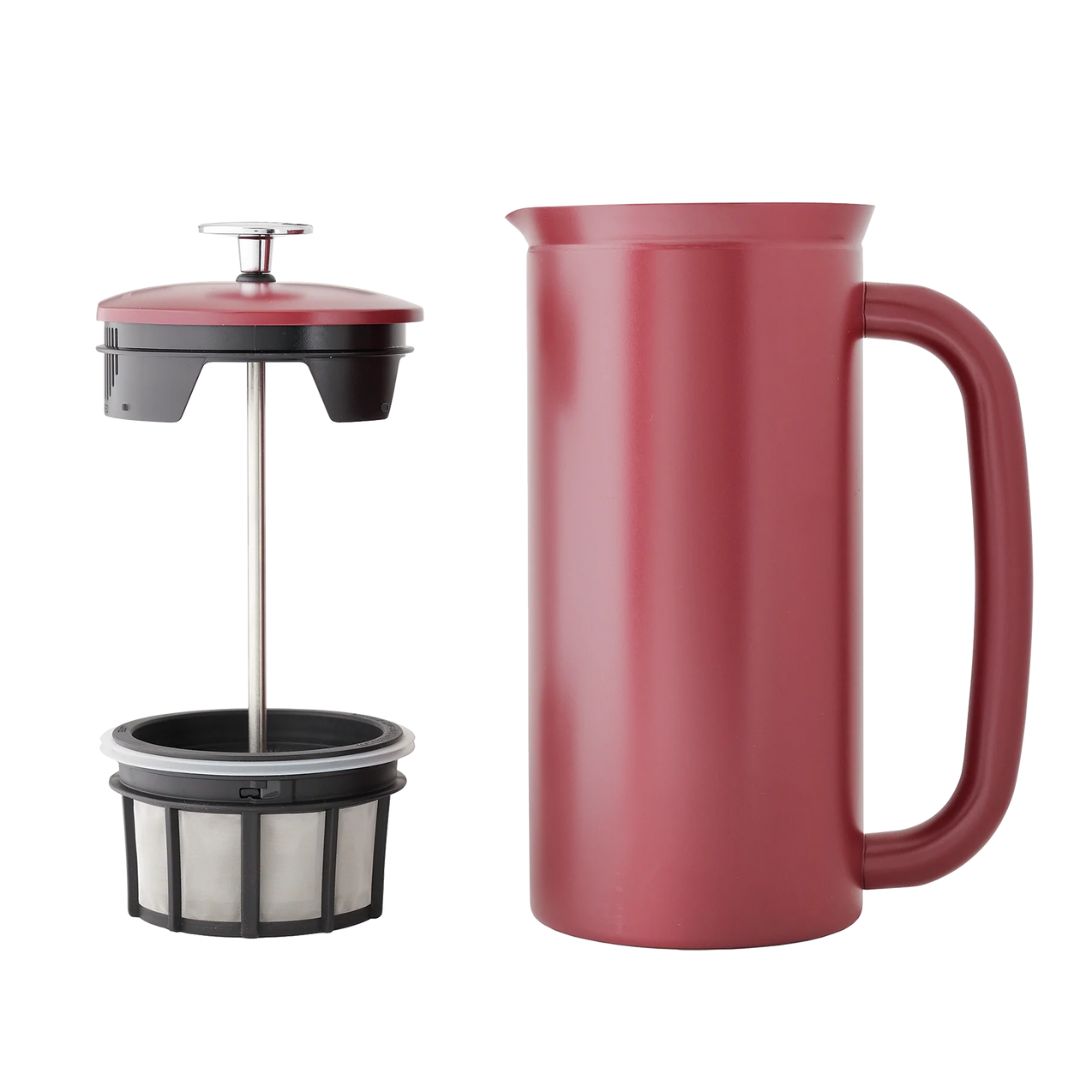
This is our favorite French press. It is top-quality, double-walled, and has a stainless steel filter, Your coffee will never be grainy or cold. Plus, you can use it to make a killer cold brew. It's expensive, but worth it.
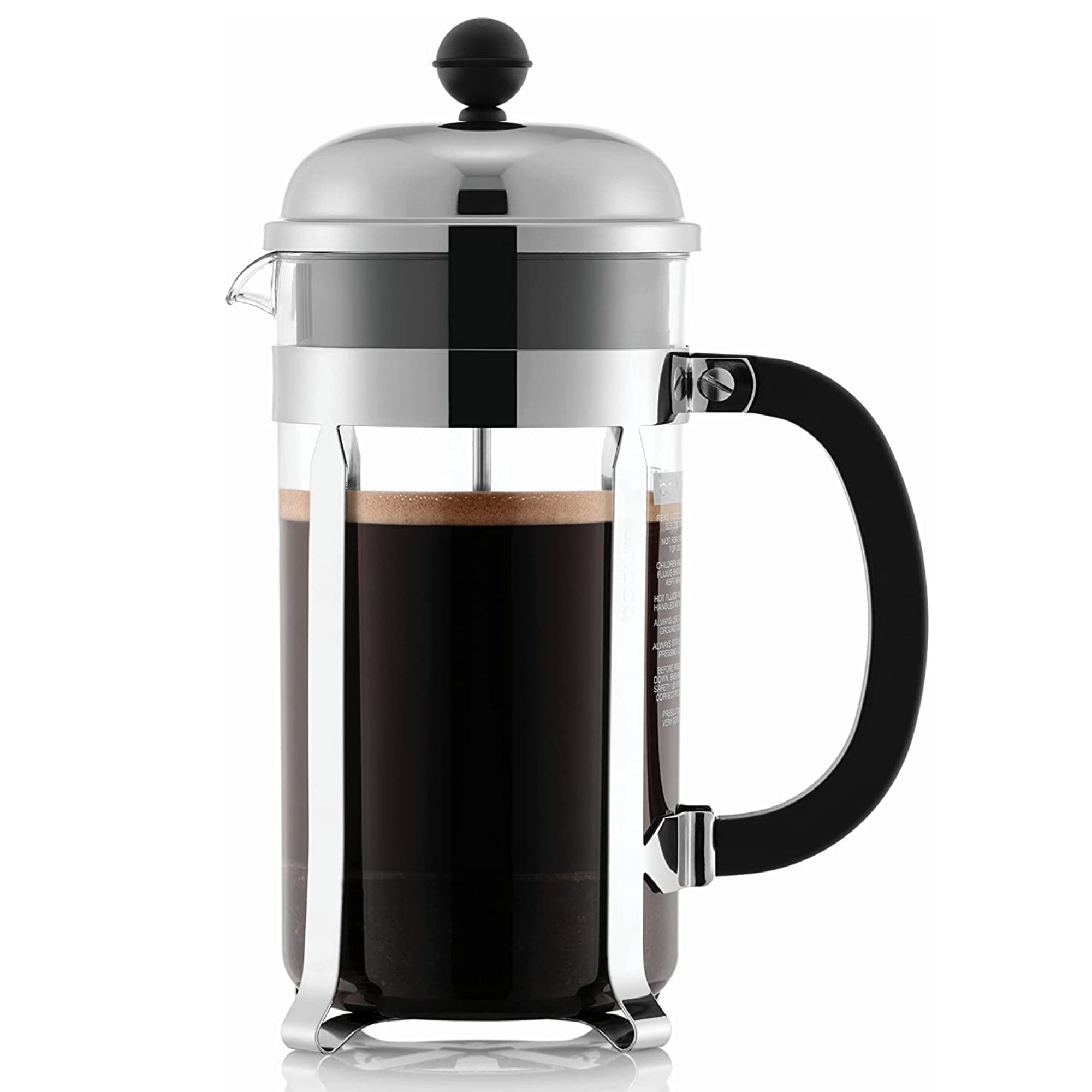
The Bodum French press is all about elegance. It's easy to use and even easier to clean. The double filter makes a smooth cup of coffee, so we can guarantee that you'll be pleased with your coffee results.
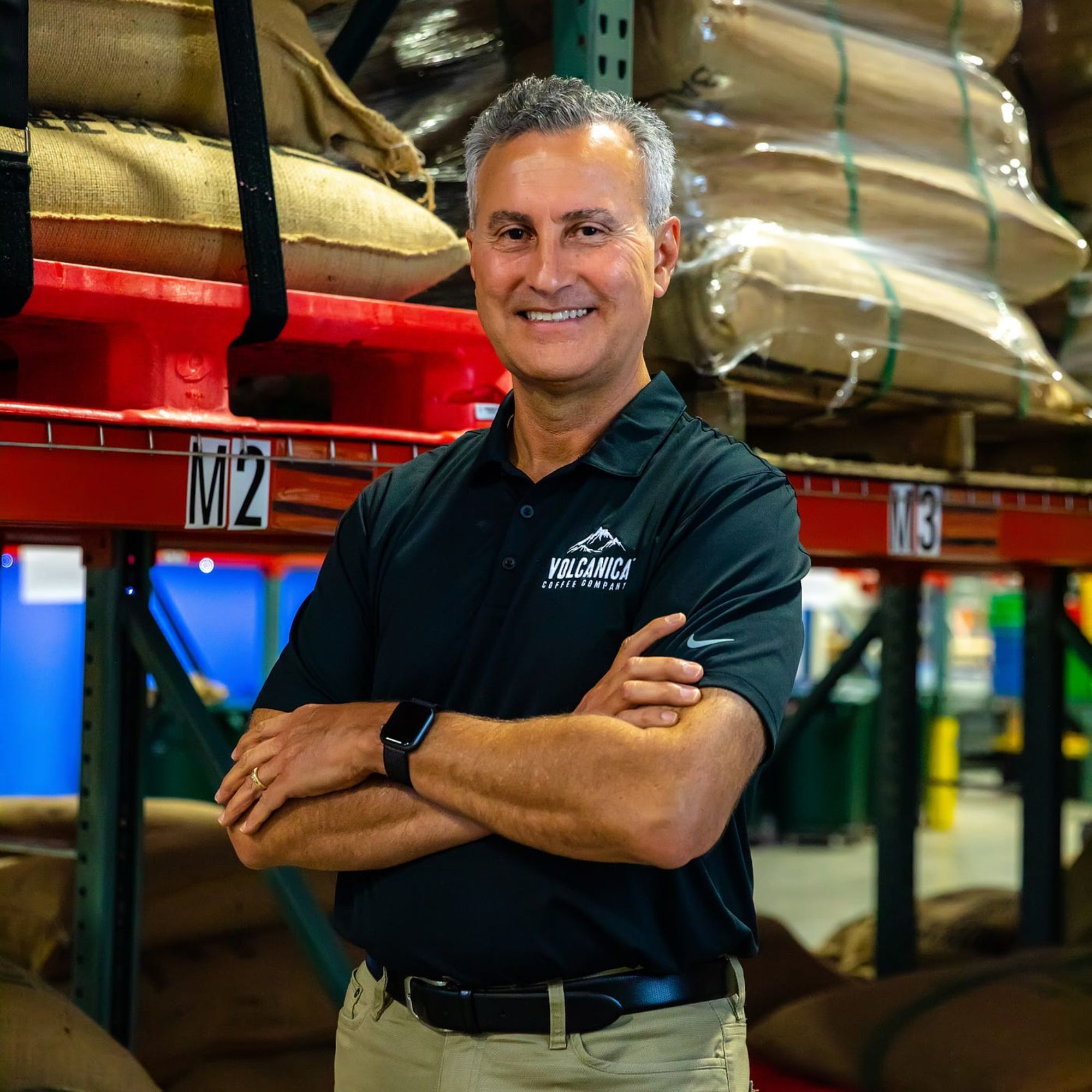
Maurice is the CEO and Founder of Volcanica coffee. They make some of the best decaffeinated coffee that I've tried, whole bean and pre-ground. They use the Swiss Water Process and you can taste it. Their coffee is packed with flavor.
For all these machines, you can buy pre-ground decaffeinated coffee. However, your coffee will taste better if you buy it as a whole bean and grind it yourself, just before you use it. The fresher your coffee is, the better it tastes. For that reason, I would recommend buying a good coffee grinder. Here are my favorite models, each suited to a different kitchen and coffee.
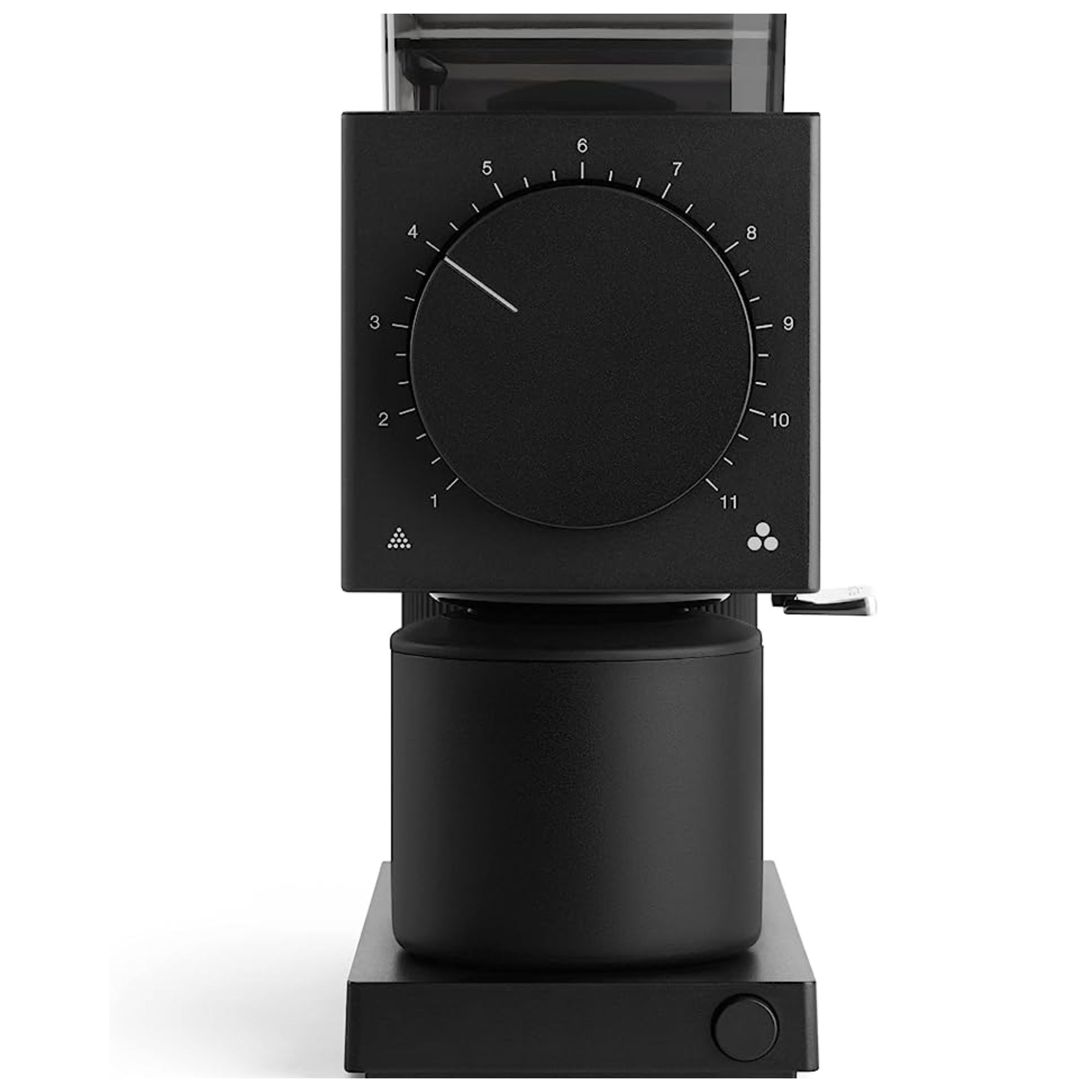
This grinder is the best in our buying guide. The flat burrs produce evenly sized coffee grounds, without creating much heat. It's chic, sturdy, and not too big either.
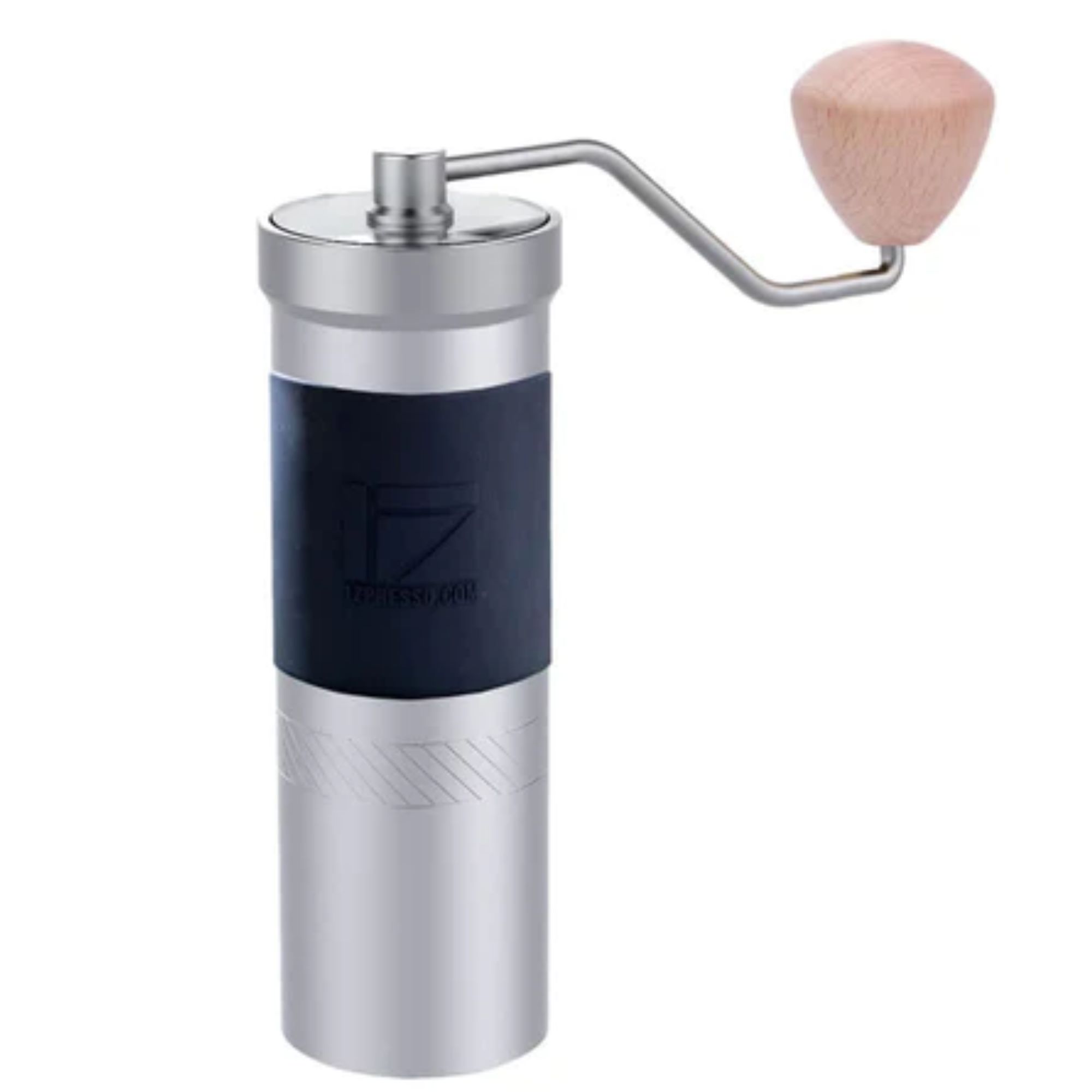
If you want a quiet, competent, manual grinder, this is the one for you. It makes consistent sized coffee grounds and it's totally portable – perfect for holidays.
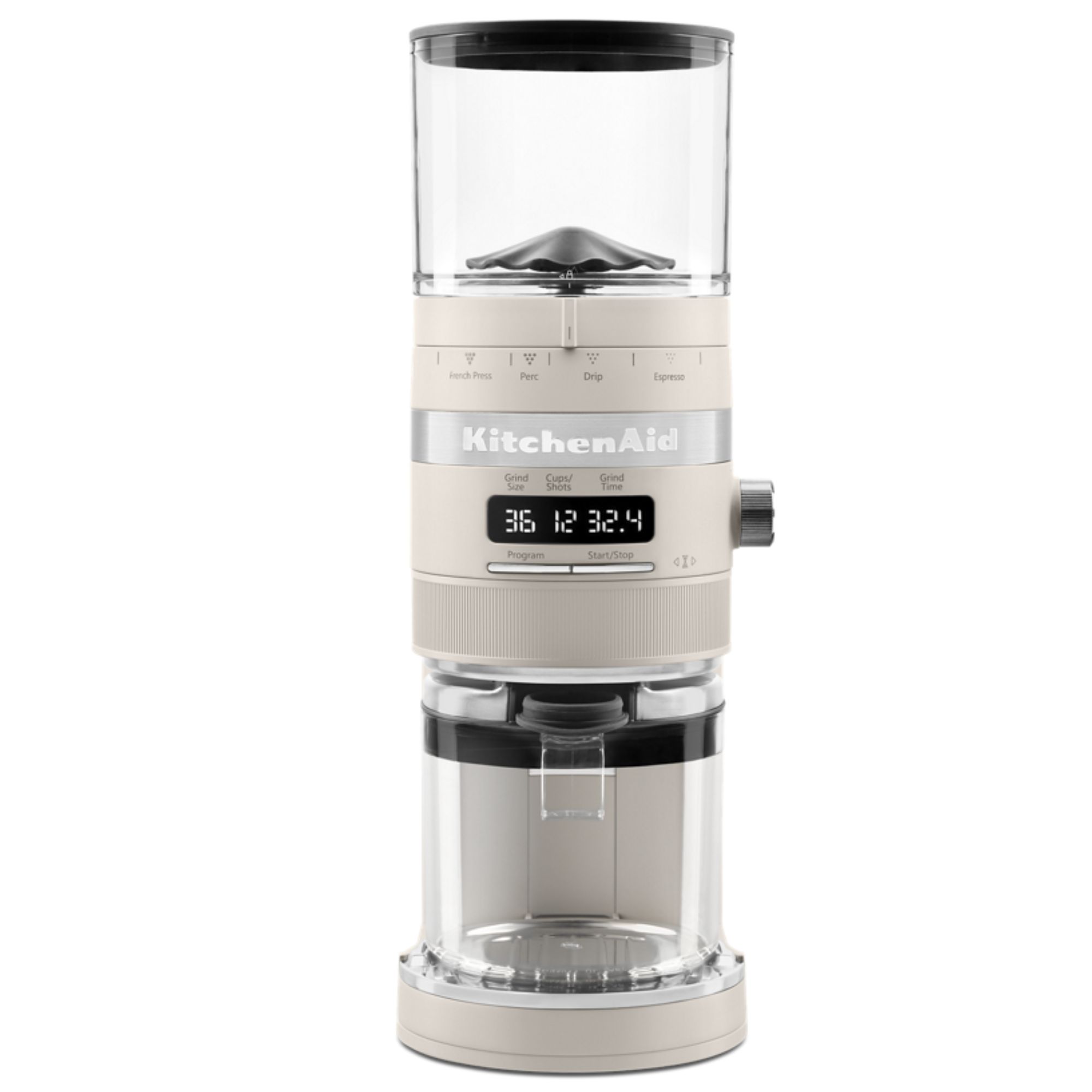
KitchenAid make the most simple grinder on the market. It's consistent and doesn't struggle with static or overheating. It's basic, but brilliant.
The Difference

There isn't much taste difference between good decaf coffee and normal coffee. It's likely that your decaf will be lighter and more delicate than a caffeinated coffee, because it's gone through one more stage of processing.
With more labor will come higher prices. Your decaf will inevitably cost more money, but if you need to cut back on caffeine, I would say it's worth it. Ashley, from Artisan Coffee Co, said that he has tried thousands of decaffeinating methods at various prices. Even though he wanted to save money, the cheaper methods never tasted as good. If you care about quality coffee, you'll have to make the investment.
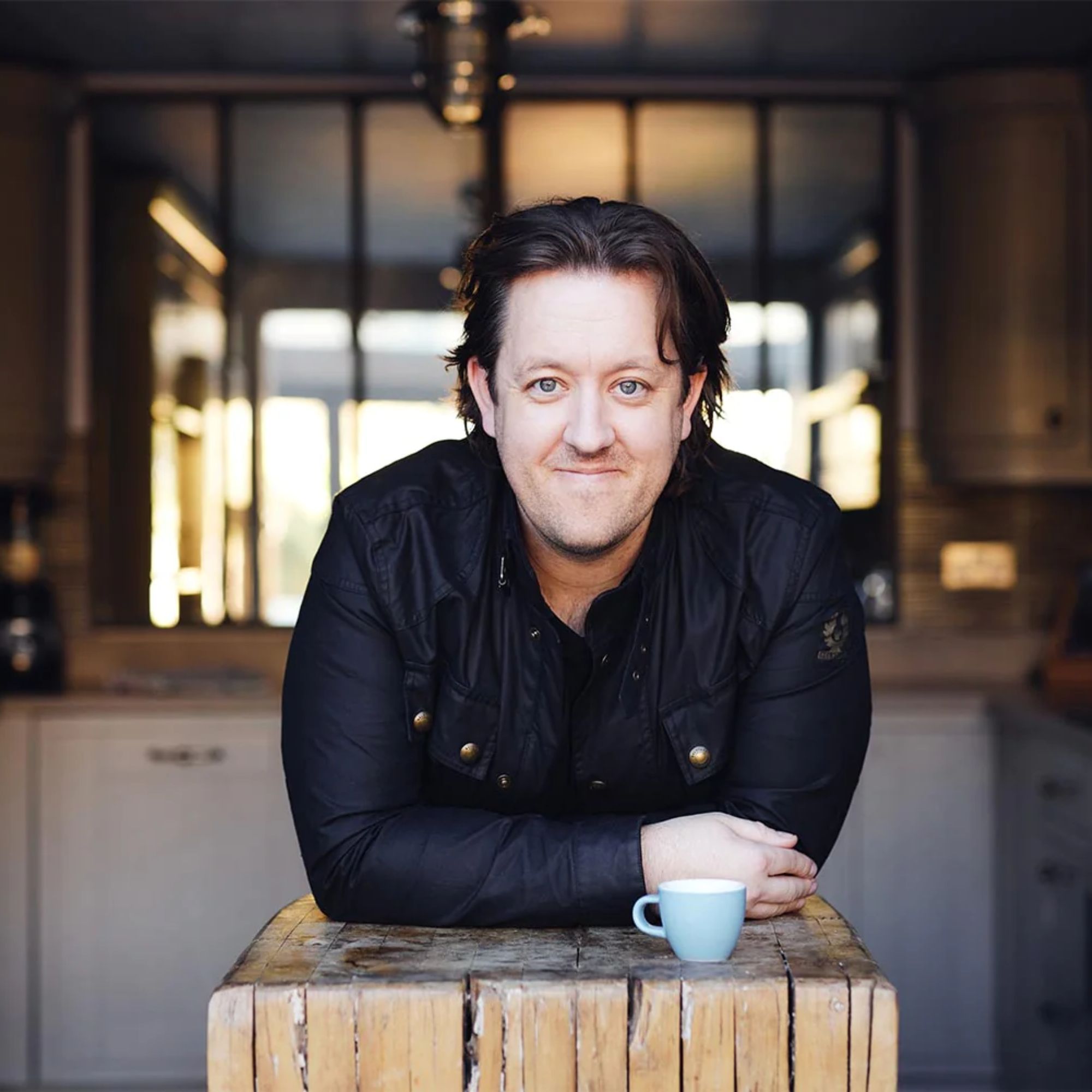
Ashley spent years as a double Michelin Star chef before turning his hand to coffee. In 2021, he founded Artisan Coffee Co. Using his chef's palette and passion for quality, he has developed a simple, but incredible coffee business.
Health Benefits
I asked this question to health experts, as well as coffee experts to get a reliable answer. Everybody told me that good quality decaf comes with the same benefits as regular coffee. Maurice Contreas says 'Both decaf and regular coffee can boost your metabolism, lower your risk of heart disease, lower your risk of type two diabetes, and some studies show it can reduce your risk of Parkinson's and Alzheimer's disease.'
'Decaf coffee may be especially healthy for those who cannot tolerate caffeinated coffee. The lower part of the stomach is also not as stimulated with decaf coffee, because it tends to be lower in acidity. If your have gastritis symptoms, decaf coffee can really improve your day-to-day life.'
Good quality decaf coffee can come with the same health benefits as normal coffee. It's still packed with fiber and antioxidants. Howard Gill, Head of Coffee at Grind, says 'moderate coffee consumption shows signs of promoting longevity, reducing the risk of ailments such as Alzheimer's, diabetes, and cardiovascular diseases.'
Those who are trying to reduce their caffeine intake, but still want that delicious coffee flavor will find that decaf is a much healthier alternative. Howard says, 'as with most things in life, excess is seldom the answer. While coffee exhibits positive attributes, moderation is the golden rule. So, if you're accustomed to indulging in super-sized lattes, consider scaling down for a balanced approach to your coffee journey.' He has lots of tips on how to enjoy coffee and incorporate sustainable quality roasts into your coffee rituals.
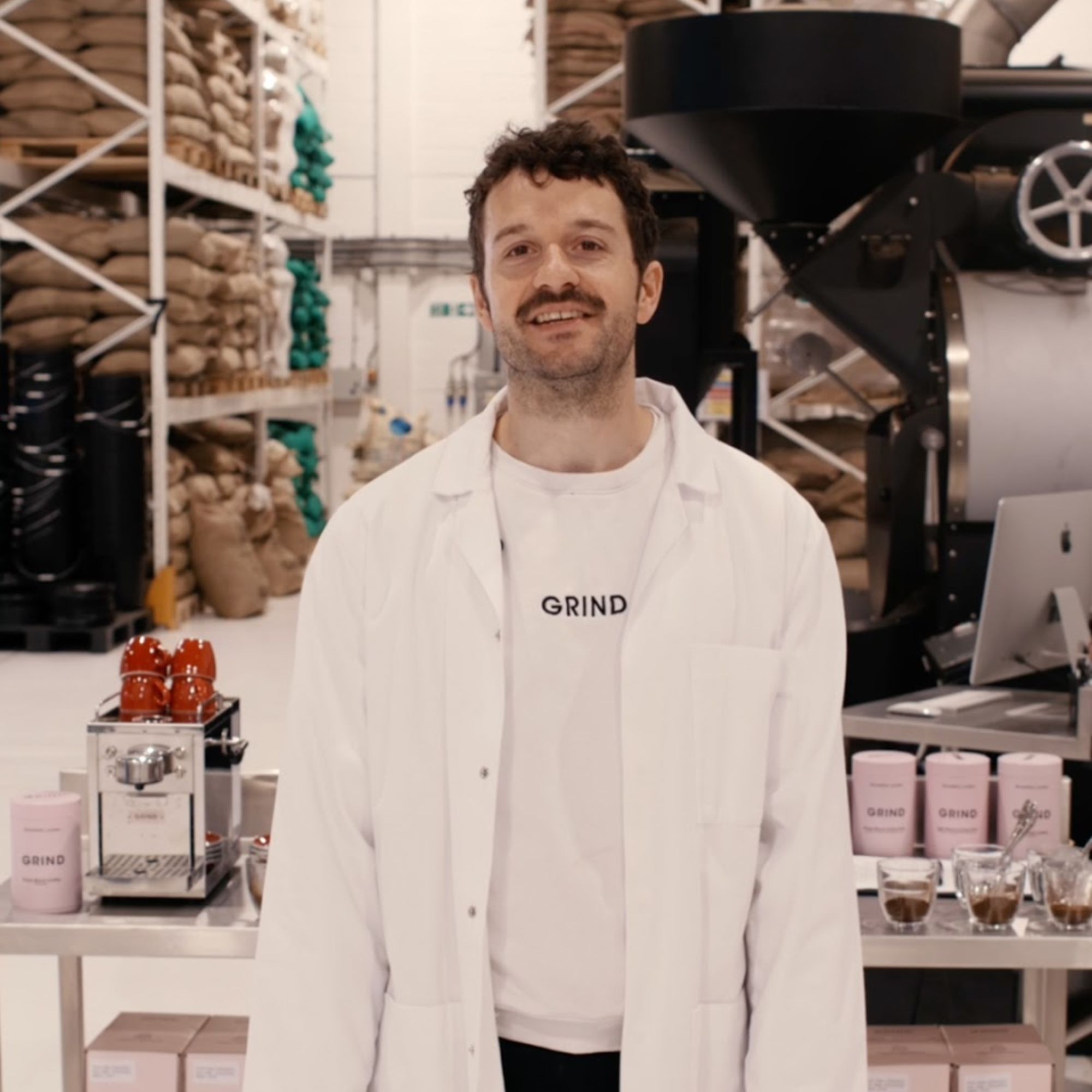
Grind's Head of Coffee, Howey, has worked in coffee for nearly 20 years. He joined the Grind team in 2016 to set up their very own roastery in London. Since then, the roastery team has gone from a one-man band of just Howey to over 20 people.
FAQs
Does decaf coffee still contain caffeine?
Experts all told me that decaf coffee still contains low levels of caffeine, in the same that dark chocolate and cocoa have caffeine. There are trace amounts. If you're having trouble sleeping, it might not be the wisest idea to have a decaf coffee before bed, but you can drink it much later in the day than you could with a normal coffee.
Is decaf coffee healthy?
Good quality decaf coffee will provide all the health benefits of normal coffee, just without the acidity and caffeine hit. Gentle methods of extraction will not damage the antioxidants or oils in your coffee beans.
What are the pros and cons of decaf coffee?
Decaf coffee is a brilliant drink for you if you like the taste of coffee, but you don't want the caffeine. The only downside is that it will cost you more money because there is another stage of processing that takes place between the bean and your cup.
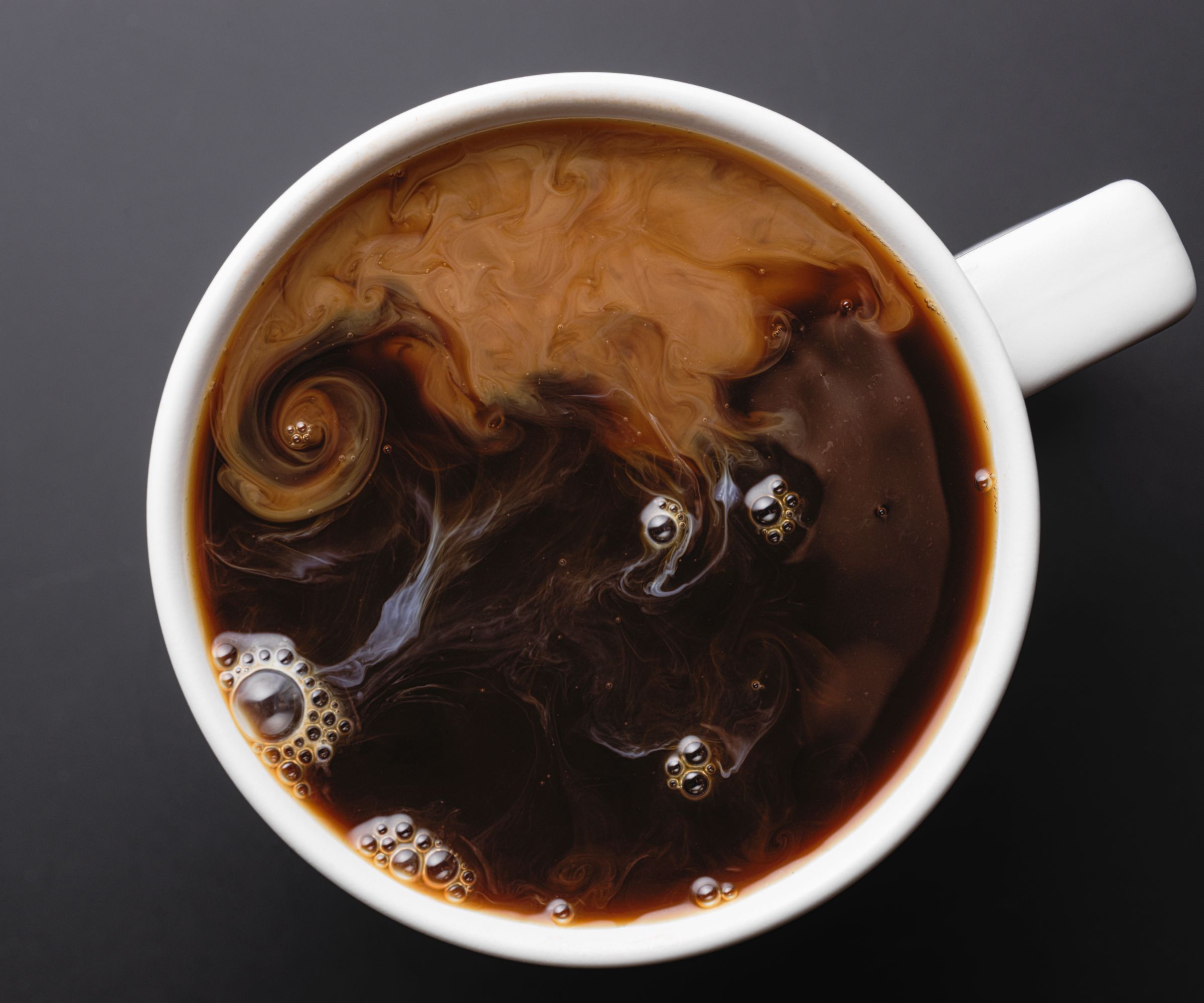
If you love coffee for the taste, decaf coffee is a brilliant way to keep drinking it late into the afternoon. Lots of cheaper decafs will have used chemical or harsher methods of decaffeination, so always look for the Swiss Water Process. If you buy good quality beans, you'll enjoy a light and flavorful cup without the acidity and buzz of a regular cup of coffee.

Laura is our eCommerce editor. As a fully qualified barista, she's our expert in all things coffee and has tested over thirty of the best coffee makers on the market. She has also interviewed Q-Graders and world-leading experts in the coffee industry, so has an intimate knowledge of all things coffee. Before joining Homes & Gardens, she studied English at Oxford University. Whilst studying, she trained as a master perfumer and worked in the luxury fragrance industry for five years. Her collection of home fragrance is extensive and she's met and interviewed five of the world's finest perfumers (also known as 'noses'). As a result of this expansive fragrance knowledge, she always puts quality and style over quantity and fads. Laura looks for products which have been designed simply and with thoughtful finishes.
-
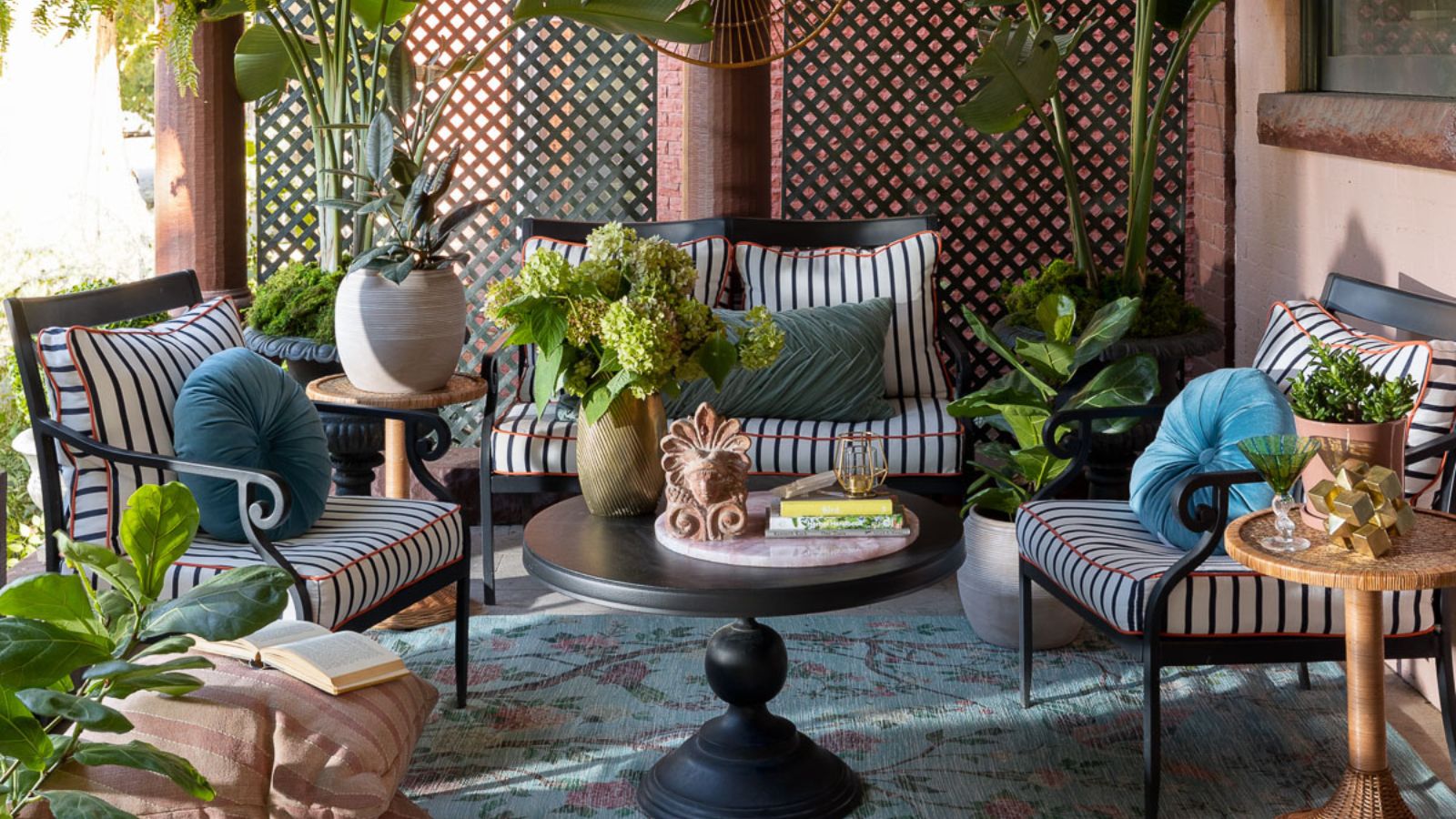 Designers share how to make your outdoor living room look more expensive – and the affordable products to get you there
Designers share how to make your outdoor living room look more expensive – and the affordable products to get you thereFrom layered lighting to luxe-looking textiles, these simple swaps made all the difference
By Charlotte Olby Published
-
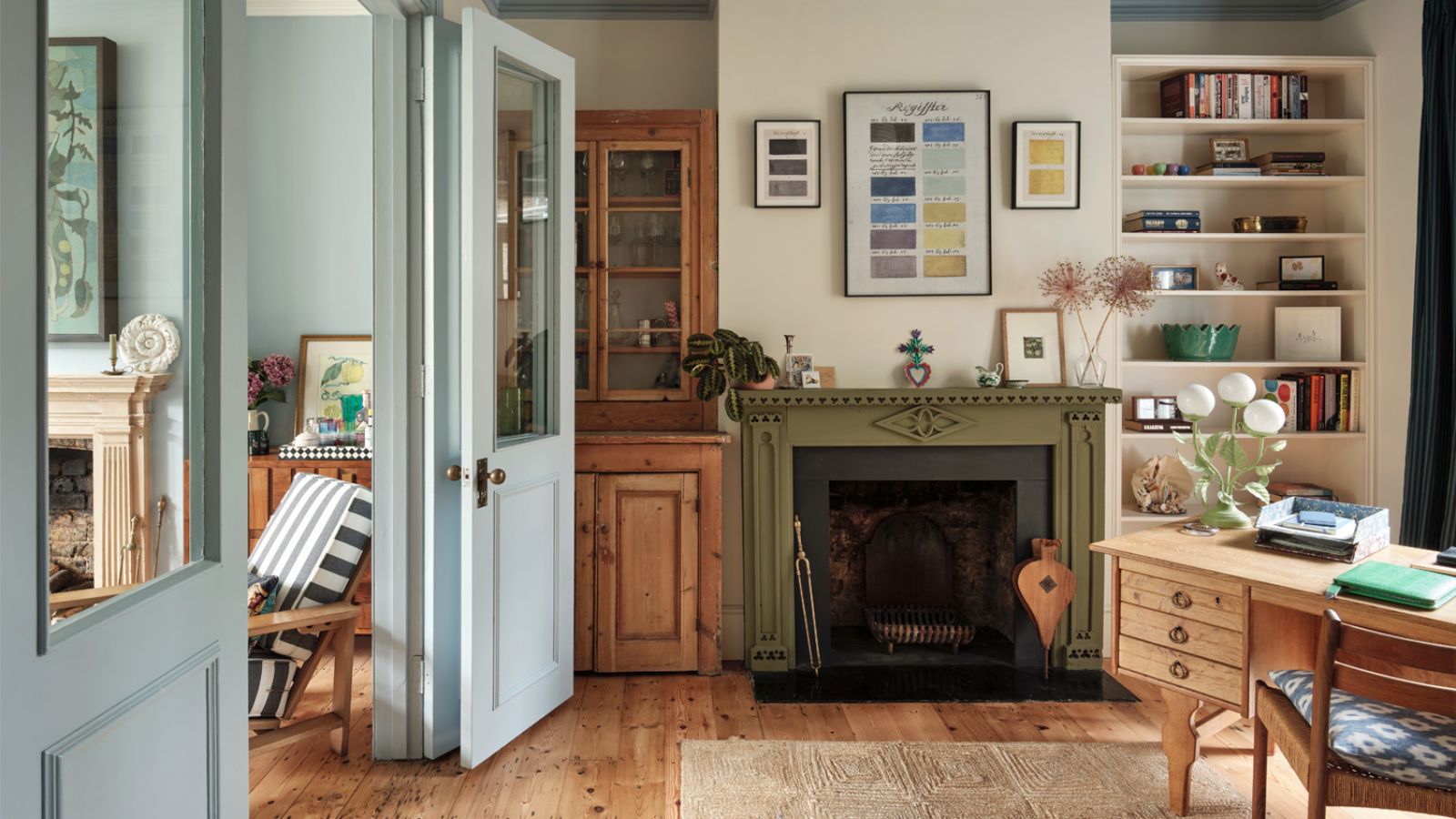 5 surprising but brilliant ways to clean with old socks – from perfectly buffing stainless steel to deterring pests naturally and more
5 surprising but brilliant ways to clean with old socks – from perfectly buffing stainless steel to deterring pests naturally and moreTackle dust in tricky corners, clean your mirrors and even banish bad odors with those rogue single socks
By Andy van Terheyden Published
